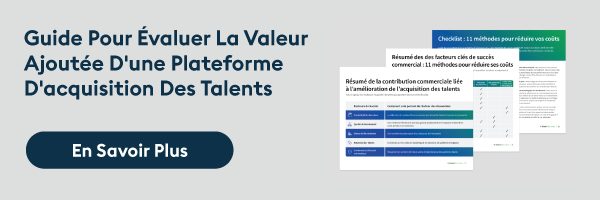We know that behavior is a key component to ensuring that each new hire fits the job and is primed for success and longevity in the role. We know that having a strategy to assess new applicants through a “weed out,” “weed in,” or “double check” approach is a simple and effective means to gather the data we need as recruiters to make selection decisions. We know that with behavioral data we can select new colleagues based on the metrics that count – not just skills, resumes, and a quick interview, but deep, unchanging intrinsic motivators in our candidates.
But when we’re investigating the tools on the market that provide behavioral reports on candidates, what should we be looking for? What determines a “best in class” tool? How do we know whether the tool we’re reviewing is a measuring the competencies we care about?
How Personality Works
The most widely-accepted psychological model of personality is called the Big Five. The Big Five describes the five major traits that come together to make up who we are. Within each major personality factor that makes up the Big Five, there are smaller personality facets, which measure one element of a personality factor.
For example, within the Agreeableness factor, there are several facets, such as, trust, morality, sympathy, and cooperation. Each of those (and more) come together to give a broad overview of a candidate’s “Agreeableness.” All of the other major factors that comprise the Big Five also have facets that come together to make the broad trait described in the factor.
The Same Personality Element Can Have Wildly Different Results
Here’s a question for you: If you are hiring a manager or senior business leader in charge of a team, would you prefer to select a candidate with great openness and creativity, able to see new opportunities and adopt a highly adaptive approach? Or would you prefer a candidate with little ability to think “outside the box”?
If you’re like most of our clients, you responded in favor of the candidate with great openness.
You would be wrong.
As it turns out, managers that are extremely open have a schizophrenic leadership style – they too often seek to switch gears and lack the ability to stay the course once a decision has been made for the team to attack.
Extreme openness works very well for front line creatives and others whose job requires great inspiration and a desire to tread new ground.
Bringing Personality Back to the Job in Question
The key decision criterion for a behavioral assessment tool is whether that tool takes the candidate’s behavioral information and relates it back to the job in question. Without that contextualization, you risk using your intuition to select candidates, rather than hard data from wide research about what actually works in the market.
If you’re using a tool like ConnectCubed, each assessment is directly relevant to the role. Rather than learning about a candidate’s Agreeableness, you’ll receive information on how that candidate will work with customers or with others in a team.
If the candidate is being considered for a managerial role, you’ll know whether that individual has the ability to make hard decisions and prioritize getting the job done over minor the immediate preferences of her direct reports.
Have you seen similar personality elements fail in two different roles? What has your process been for selecting new assessment technology at your company? What are the key decision factors that lead you to pick one tool over another?
Leverage thousands of tests from leading assessment vendors (such as ConnectCubed) through the SmartRecruiters Assessment Center.















